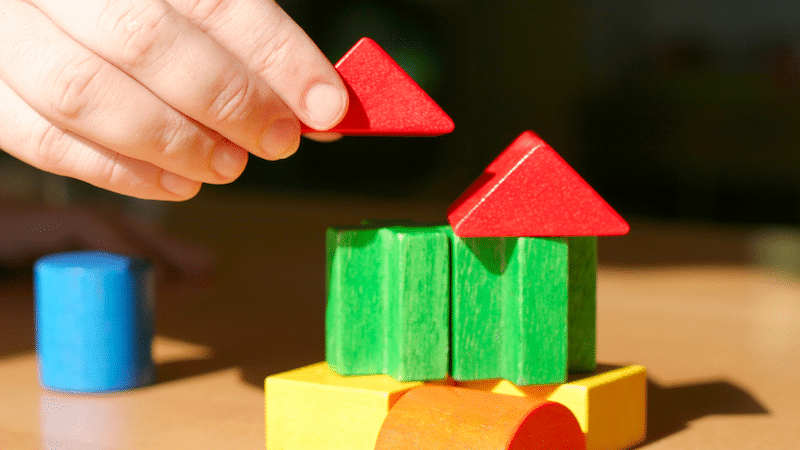Rebuilding Self-Esteem After Sexual Assault

After sexual violence, many survivors experience a negative impact on their self-esteem. All of the feelings a survivor has after sexual assault are valid, meaning that they are not wrong for having these emotions, but that doesn’t mean their self-assessments are accurate. Survivors deserve to value themselves and their place in the world, and there are ways to repair self-esteem after sexual violence and/or assault.
Realistic Goals
Sometimes, survivors set unrealistic goals for themselves and their healing process. Survivors may determine that they “should feel better by now” if the trauma happened a long time ago, and as a result, they may feel inadequate when they cannot achieve those goals. They also may think that there is a stark divide between being unhealed and healed, which makes it hard to recognize progress. Unrealistic goals are difficult to achieve and can worsen a survivor’s self-esteem.
Many survivors benefit from redefining healing as a process and journey rather than a destination. All trauma survivors have days, weeks, or even months where they are more impacted by the trauma, and their self-esteem may take a hit when they feel like their progress has become “undone.” Healing is not linear and having hard times does not undo progress. If survivors can set small, realistic goal posts for their healing, they are more likely to achieve those goals. Smaller goals also provide more opportunities to recognize progress.
Re-defining Sexual Assault and Sexual Violence
Many people do not get the sexual violence education they deserve, and may not know the definitions of sexual assault and sexual violence. This can cause them to believe that they played a role in what happened. Sexual assault can be briefly defined as, “any kind of non-consensual physical sexual act.” Sexual violence can be briefly defined as, “an umbrella term for any kind of non-consensual sexual contact, behavior, or aggression.” By definition, sexual assault and sexual violence have nothing to do with anything the survivor themselves did or had control over. When trying to repair self-esteem after sexual violence, survivors may benefit from repeating these definitions when they catch themselves victim-blaming themselves.
Re-defining Justice
Survivor’s self-esteem can also be impacted because they feel as though the perpetrator “got away” with it. Seeking legal justice can be incredibly difficult, both in terms of the emotional impact it has on survivors as well as the likelihood that a report will result in a conviction. Injustice is a difficult emotion to cope with, so it may be helpful to reconsider what justice looks like. Justice may look like taking legal action, or it can look like becoming an activist, publicly speaking about your experiences, or even just trying to leave what happened in the past to rebuild a fulfilling life despite the trauma.
Learn About Trauma
Survivors often criticize themselves for the ways they responded during or after an assault. When survivors learn about the neurobiology of trauma, which is how our brains and bodies respond to trauma, they are better able to understand themselves. Learning that the ways they have been impacted by trauma are normal and experienced by others, it is easier to acknowledge that they are not uniquely flawed.
Validation and Compassion
Sometimes, survivors judge themselves for how they feel or responded during and after the assault, telling themselves that they “shouldn’t” feel or act the way they do. To validate is to accept and understand an emotional response without judgment. There is no “right” or “wrong” way to feel or respond to trauma. It can be helpful to pay attention to self-talk and combat criticism with validation. Oftentimes people cannot control their initial thoughts and feelings, but they can control what follows them. Talking to oneself as though they are speaking to another survivor or a loved one can result in more compassionate self-talk.
Challenge your inner critic with questions such as:
- What is the evidence that proves this thought is the reality?
- What would you tell someone you cared about to do if they told you they were having the same thought?
- What might be a different explanation for the one you have in your head right now?
Seek Support
Survivors often feel alone in their experiences, which can cause them to feel as though there’s something uniquely flawed about themselves. Isolation can also make survivors believe that no one cares about what happened to them. Seeking support can help survivors learn that they aren’t alone and people do care about what happened.
Support can come from:
- Friends
- Family
- Therapists
- Hotlines
- Support Groups
- Survivors.org Community Forums
These feelings can be amplified when survivors receive negative responses from others when they disclose their assault. Survivors are less likely to seek support when the initial response they received was negative. Although it’s difficult, survivors should continue to reach out for support from others until they get a positive response. People do care about what happened.
Challenge Other Victim-Blaming Fallacies
Some survivors hear the echoes of rape myths and victim-blaming in their negative self-talk. Survivors may hold themselves to the standard of “the perfect victim.” Learning more about these myths and why they aren’t based in reality can help dismiss them. These thoughts and feelings come from somewhere. When you catch yourself having these thoughts, try to determine where they came from. Oftentimes, they can be traced back to individuals or ideologies we do not trust or agree with. When you speak to yourself that way, try to imagine it coming from those sources, as it makes it easier to dismiss.
You deserve to feel content with yourself. Negative self-esteem can greatly affect one’s quality of life, and survivors deserve to have a good life after what they’ve experienced. There are ways to begin rebuilding your self-esteem after trauma.

988 Suicide and Crisis Lifeline
988 Lifeline is a national network of local crisis centers that provides free and confidential emotional support to people in suicidal crisis or emotional distress 24 hours a day, 7 days a week in the United States. We’re committed to improving crisis services and advancing suicide prevention by empowering individuals, advancing professional best practices, and building awareness.

National Sexual Assault Hotline
RAINN is the nation’s largest anti-sexual violence organization. RAINN created and operates the National Sexual Assault Hotline in partnership with more than 1,000 local sexual assault service providers across the country.
Phone: 800-656-4673
Chat: Click here to chat

VictimConnect Resource Center
VictimConnect is a referral helpline where ALL crime victims can learn about their rights and options confidentially and compassionately.
Phone and text: 855-4-VICTIM
Online chat: Monday-Friday from 9am to 5pm EST



